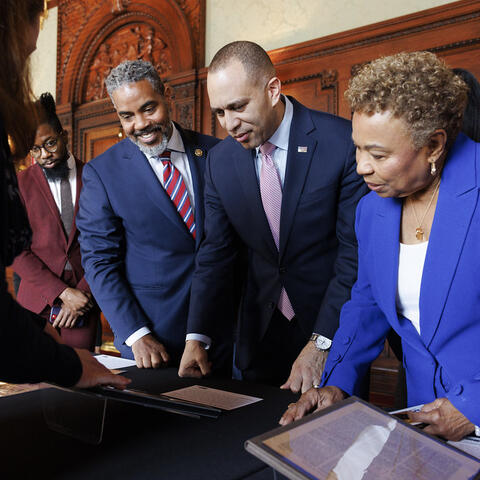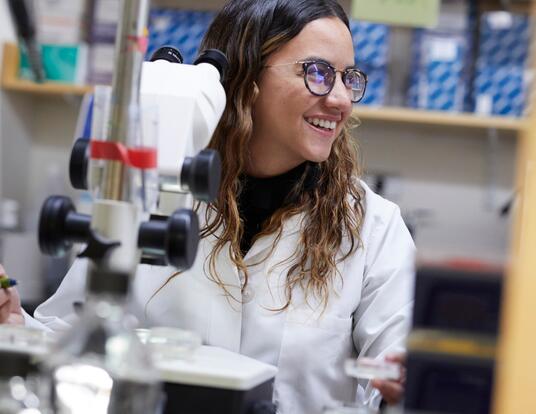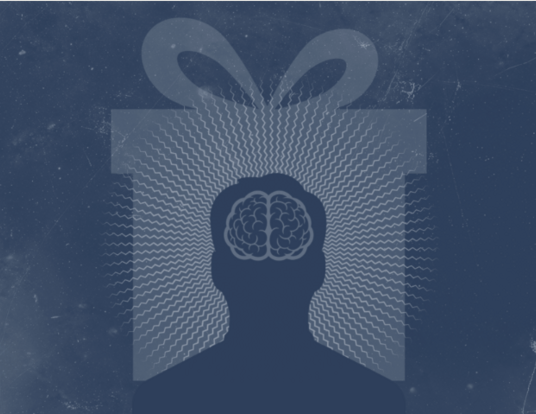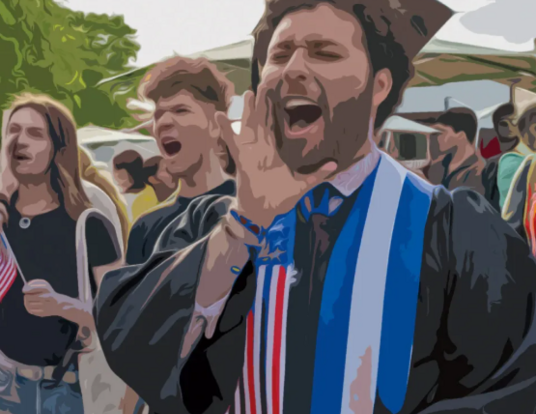The Courage to Embrace Difference
At Lavender Graduation, Hammonds shares story of advocacy and perseverance
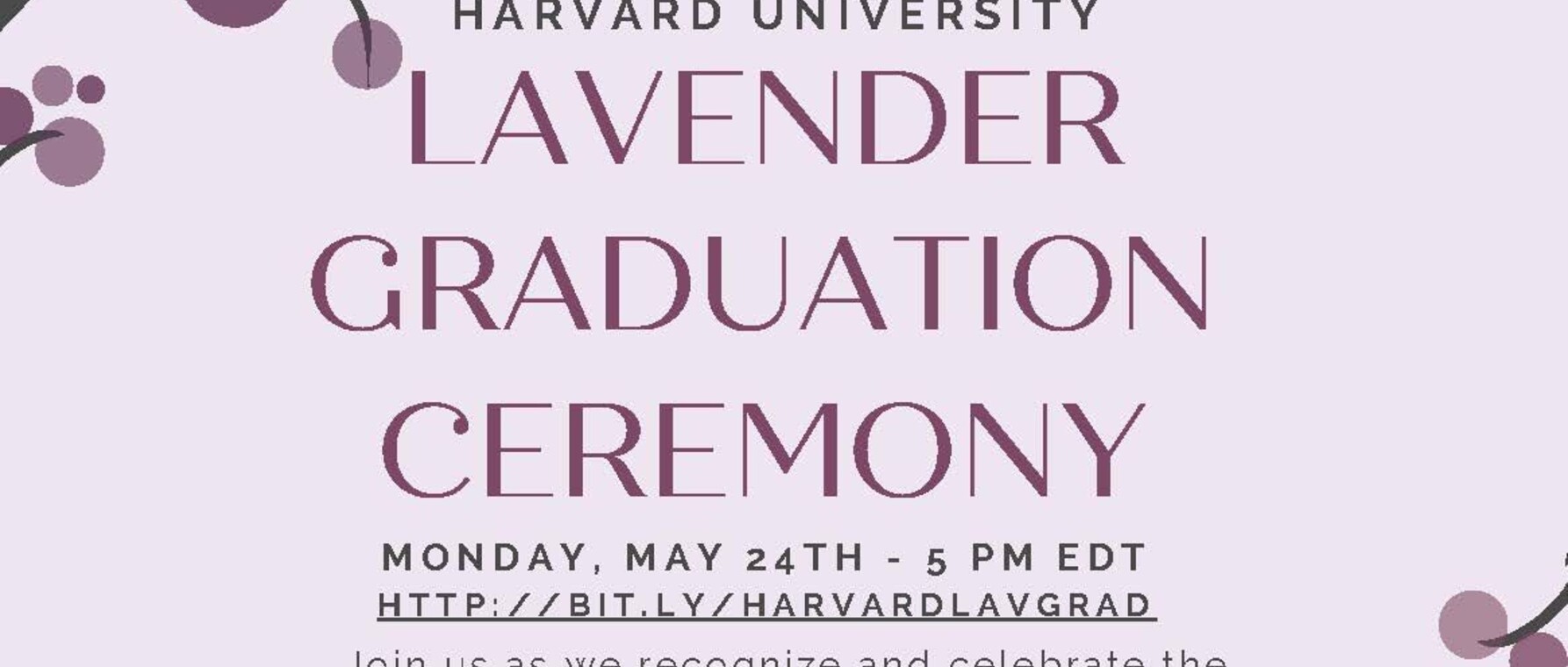
At Harvard’s first Lavender Graduation on May 24, the student group LGBTQ@GSAS bestowed the Evelynn Hammonds Award for Exceptional Service to BGLTQ+ Inclusion on its first recipients. Hammonds—the chair of the Department of the History of Science, the Barbara Gutmann Rosenkrantz Professor of the History of Science, and a professor of African and African American studies—helped inaugurate the award with a speech that chronicled her own journey as a BGLTQ student and faculty member. Below are the remarks that she delivered.
Thank you for Daniel for that lovely introduction.
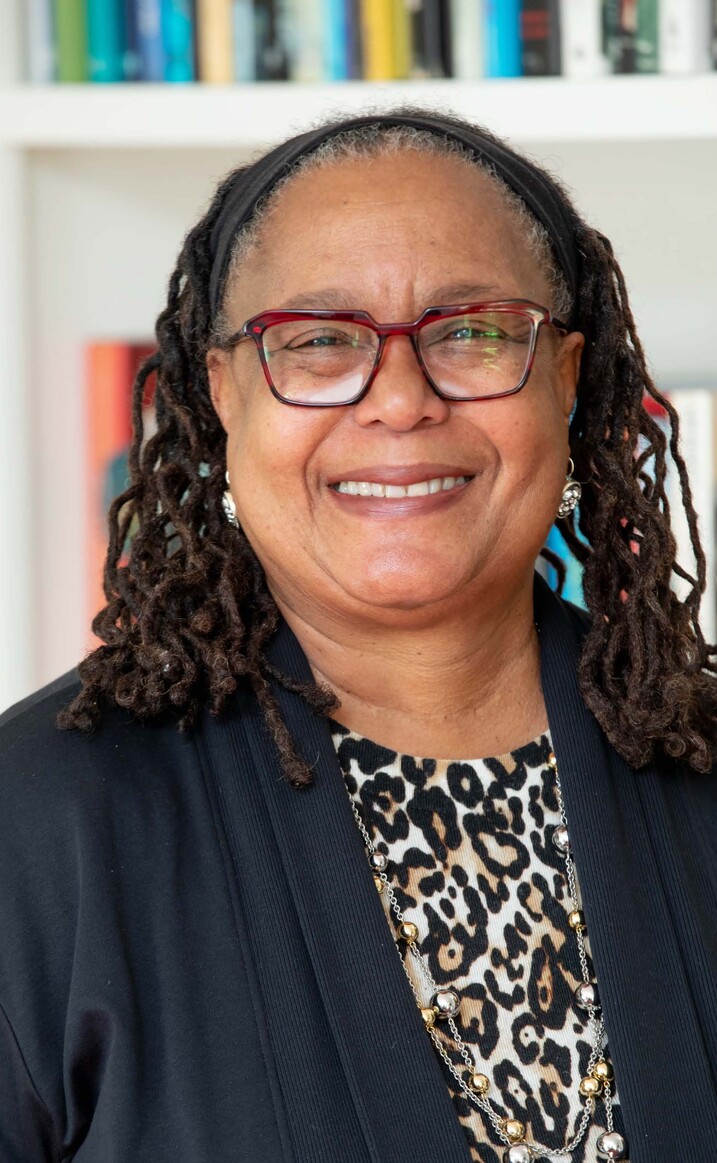
I want to begin thanking the members of LGBTQ@GSAS for naming the award for exceptional service to BGLTQ+ Inclusion after me. I am so honored and humbled by this – you all should know that after I received the email from Dr. Sheila Thomas, I cried for about two days every time I tried to tell someone about the award. I am also very pleased that this year the award will go to University Health Services BGLTQ team led by Dr. Bruce Churchill. Dr. Churchill and the team of practitioners at HUHS have been so critical to the provision of high-quality and sensitive health care to the BGLTQ community here at the University for over twenty years.
I came to graduate school at Harvard in 1985, thirty-six years ago. At that time BGLTQ students, faculty, and administrators had no expectation that if we disclosed our sexual identities, we would be treated with sensitivity and respect at HUHS. I like many others at Harvard knew that if we did come out to a nurse, doctor, or counselor at HUHS we might not actually get reasonable quality healthcare. Yet, at the same time, if we did not come out, we risked having whatever we were facing being misunderstood at best and misdiagnosed at worse. Today, it is my understanding that there has been a significant and hugely positive improvement in healthcare for BGTLQ people at HUHS. You should ask why this transformation is so important. When illness or mental distress strikes any of us our vulnerability is heightened and the uncertainty that emerges in the medical encounter can shape our lives in so many ways. One experience of homophobia in a medical setting can lead a BGLTQ person to hesitate or refuse health care for the rest of their lives. When I first came to Harvard, I did not feel safe at HUHS, and I avoided going there at all. That decision cost me dearly when I really needed help and I am glad that over the years I was able to find a way to advocate for myself at HUHS and in the Partners Health Care system where I currently receive my medical care.
Being able to advocate for myself did not happen overnight. I first had to claim who I am as an African American feminist and lesbian in every world I lived in. I spent a lot of time beginning in graduate school reading the works of feminist writers and activists like the African American lesbian poet and activist Audre Lorde and the work of white lesbian feminist writer and activist Adrienne Rich just to name two. I spent time at endless meetings at the women’s center and the feminist bookstore New Words both here in Cambridge and I surrounded myself with other lesbian feminist women who were interested in the same journey I was on - to define ourselves in this world. Adrienne Rich in her essay “Claiming Education” described our journey to self-affirmation in this way,
“…Responsibility to yourself means that you don't fall for shallow and easy solutions-- predigested books and ideas, weekend encounters guaranteed to change your life, taking "gut" courses instead of ones you know will challenge you, bluffing at school and life instead of doing solid work.’ She continued, “ It means that you refuse to sell your talents and aspirations short, simply to avoid conflict and confrontation. …It means, therefore, the courage to be "different".” And I would add that what we were seeking was both the courage to be different and the courage to always embrace our difference.
But just like anyone else I and many of my friends really needed women like us to help us understand what embracing our differences actually meant. For me, that came through the life and work of Audre Lorde. The influence that Audre Lorde’s life and work had on my life personally and professionally is almost indescribable. Until I encountered her work, I simply did not have a frame of reference for my life as a lesbian, a feminist, emerging historian of science, and political activist. Growing up in Atlanta, GA I was steeped in the civil rights movement. When I came to Cambridge to graduate school, I found in the vibrant women’s movement here a way of thinking about the status of women in America that made it possible for me to study in the male-dominated worlds of science and engineering. The women’s movement also provided the context for my exploration of my sexuality. Yet, with each step I made in identifying myself as someone committed to civil rights, women’s rights, the rights of gays and lesbians I found that there was nothing simple about claiming multiple identities in these complicated intersecting movements. I found that I was increasingly uncomfortable as a gay person within groups fighting for the rights of African Americans where gays and lesbians were invisible. I was equally upset by the inattention to race within the women’s movement. And lastly, I was stunned at the lack of attention to gender differences and race that I found working in gay and lesbian groups around the epidemic of HIV/AIDS. In my mind, these movements were inextricably linked if for no other reason than people like me existed who occupied all these worlds. Until I discovered the work of Audre Lorde there was nothing in the literature that could help me see how I could come to terms with my multiple identities without choosing one over another.
Audre Lorde through her extraordinarily brilliant writing and her personal courage opened a door and those of us who followed her found a sense of integration and wholeness that allowed us to do the work we wanted to do to change the world. In her own inimitable way, Lorde didn’t just ask us to consider the multiple identities we all have and leave it at that, she gave us a “…a new critical social theory that provided us with the grammar and vocabulary to describe and define difference and the complex nature of oppression.”
For me breaking silence about my multiple identities was the necessary pre-condition for entering into the movement toward self-love, self-respect, and self-determination that continues to change our world.
The greater public acceptance of African Americans, gays and lesbians, and women in public and private institutions did not happen just because some folks woke one morning free of their prejudices and biases. It happened because of the sustained political efforts of our communities. It happened because the epidemic of HIV/AIDS galvanized people to fight for change in health care, the arts, and the law. It happened because affinity groups within major corporations worked steadily and without fanfare to get benefit policies changed. It happened because gays and lesbians filed lawsuits and brought the courts into the debate over the meaning of an expansive notion of equality. It happened after nearly a hundred years of sustained activism culminating when women of the world united and spearheaded a decade-long series of conferences on women’s issues under the auspices of the United Nations. It happened because the people of the world who believed in equality joined forces with Nelson Mandela and the people of South Africa to end apartheid. It happened because we marched in the streets of our hometowns and in Washington, DC for more than two decades. During the 1980s I first started out riding the bus to D. C. for those marches and sleeping on the crowded floor of somebody’s apartment–to my last march where I flew in and flew back home in the same day–now that was change!! All these changes for many of us culminated in the passage of legislation in the state of Massachusetts to allow same-sex marriage in 2003. Chief Justice Margaret Marshall wrote, "Without the right to marry . . . one is excluded from the full range of human experience and denied full protection of the laws." In what is really a short time in human history – indeed during the span of thirty years of my own life- the world has changed profoundly, and far greater equality has been achieved for all Americans than anyone could have imagined.
When I look back over these last thirty- six years I realized that ultimately acceptance of multiple stigmatized identities has to come from inside. One cannot participate in the kinds of activism that brought about the changes I just recounted without a personal commitment and acceptance of self. In my life, this process of acceptance began when Audre Lorde said – “Your silence will not protect you.” In that moment when I heard her say those words, I began to imagine myself free and she became a heroine to me. For me, breaking silence about my multiple identities was the necessary pre-condition for entering into the movement toward self-love, self-respect, and self-determination that continues to change our world.
As I say these words, they seem rather lofty, but I can truly say that they propelled me to action and to personal wholeness. While I am mindful of my own journey and the many friends, I’ve made along the way I remain saddened by a loss of community. There is no one BGLTQ community – as there never was one women’s community or one African American community. Yet the articulation of the case that we can be multi-faceted individuals within multiple communities has been difficult to make. I for one have never wanted to live in a community where everyone was like me –though I know that many people prefer homogeneity to heterogeneity. The comfort that they find in sameness is actually the mirror of the comfort I find in difference. Again, it was Audre Lorde who put into words a way of thinking about the comfort I feel with difference. She wrote, “It is within our differences that we are both most powerful and most vulnerable, and some of the most difficult tasks of our lives are the claiming of differences and learning to use those differences for bridges rather than barriers between us.”
Certainly, there are real differences between those of us in this room and we can use those differences to separate ourselves from each other or to build a strong community here at Harvard. Here at Harvard, the big issues we face are in talking about sexuality and class; sexuality and religion; sexuality and race; sexuality and politics; and sexuality itself. A community built on affirming difference is one that does not settle for “…pretended sameness and the false security that sameness seems to offer,” Lorde would say. I say a community built on the affirmation of difference is one that looks forward to a better future for all of us.
Thank you again for naming this award after me. It is the greatest honor I have ever received, and I will be forever grateful for it, and I will continue to try to live up to this recognition for the rest of my life.
Photo by Melissa Blackall
Get the Latest Updates
Join Our Newsletter
Subscribe to Colloquy Podcast
Simplecast


